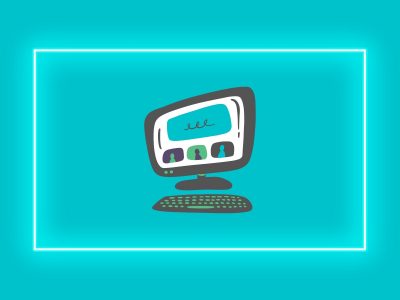Boston University students have been learning under the hybrid Learn from Anywhere model the past school year, combining in-person and remote class structures. When the decision was first announced, there were some safety concerns about bringing students back to campus at all and not going fully remote. Having students live in such close quarters with one another felt ill-conceived for both the Boston and BU communities.
However, we have had a pretty low total positivity rate of 0.20% since July, with a total of 2,006 cases. Due to BU’s rigorous testing system and isolation infrastructure, students have been able to live on campus and attend in-person classes while still being COVID-19 safe. For students who need to escape their home environment or didn’t have stable living arrangements, opening up campus and housing with a hybrid learning model has been vital.
Academically, socially and mentally, college during the pandemic has also evolved and shifted throughout the year.
In the first semester of LfA, the format was still relatively new and perhaps subsequently exciting. We were fresh out of summer, with no traces of burnout, ready to tackle classes. But the mental toll soon accumulated — exponentially.
This Spring, the burnout has intensified beyond what most of us may have ever experienced in our lives — built on top of the pre-existing stress and fatigue from the Fall. In many ways, though, Spring has been better than the previous semester.
Compared to 2020, more people have joined the BU student body in the Spring — both on campus and online. The sense of camaraderie and ability to meet new people may still be a bit limited by the remote nature of life, but there were more opportunities in general and a greater sense of community: People are being vaccinated, the weather has been warming up and who can forget the beach chairs?
Altogether, there’s been more connectivity within our community — whereas last semester, there were notably fewer people on campus, and dormitories turned into ghost towns after Thanksgiving break.

Having the LfA format also helped reduce the mental strain ever so slightly. Because students had the choice to attend classes in person, many were able to see more faces and establish more structure in their day.
Furthermore, LfA has given students more opportunities to step outside their comfort zone. Many students, driven by the isolation we’re all feeling and perhaps emboldened by the online setup, have been pushed to seek out their own micro-communities on campus they wouldn’t have found otherwise. Of course, being able to do so or wanting to do so depends on the person, but LfA allowed communities to thrive in the face of the pandemic with the added ease of virtual hangouts.
Adapting to LfA from an academic standpoint has also allowed for more creative testing: open-note exams that rely on abstract thinking rather than brute-force memorization.
While we may complain about LfA, it has its advantages for BU students. For example, international students may not have been able to continue their college education this year had it not been for this system, which allowed them to choose their own learning format from anywhere around the world.
In retrospect, LfA is likely the best solution to the pandemic the University could’ve envisioned. We are incredibly grateful we even had the opportunity to return to campus and resume our studies.
That’s not to say it’s perfect. There could have been more accommodations — such as a pass-fail or Credit-No Credit option and largely asynchronous classes — if the administration had adjusted to the unusual circumstances rather than aiming for the closest proximity to normalcy. Additionally, professors aired their concerns with LfA last September, and it felt as though the University didn’t improve upon the experience at all this Spring.
These concerns included classroom ventilation, professor autonomy and, most importantly, being able to opt-out of teaching in person for high-risk faculty. Other concerns from the entire BU community in September included technological failures and less-than-adequate equipment in classrooms. From a student perspective, not much has been changed since then — hybrid classes still have their technical difficulties.
But many of the problems we’ve experienced and attribute to the LfA curriculum are only the product of the pandemic. Excessive screen time and remote classes are inevitable, even if we’re able to take a portion of our classes in person. This means we are mentally exhausted and often unable to retain what we’ve learned.
But this is also something the administration has no control over, save perhaps supporting us and giving us the resources we need to recover from Zoom fatigue after the fact.
We shouldn’t absolve the University of its responsibility to our mental health and well-being, but we also shouldn’t demonize a good solution to a terrible situation. Instead, let’s be proud of adapting and say good riddance to Zoom — hopefully.











































































































